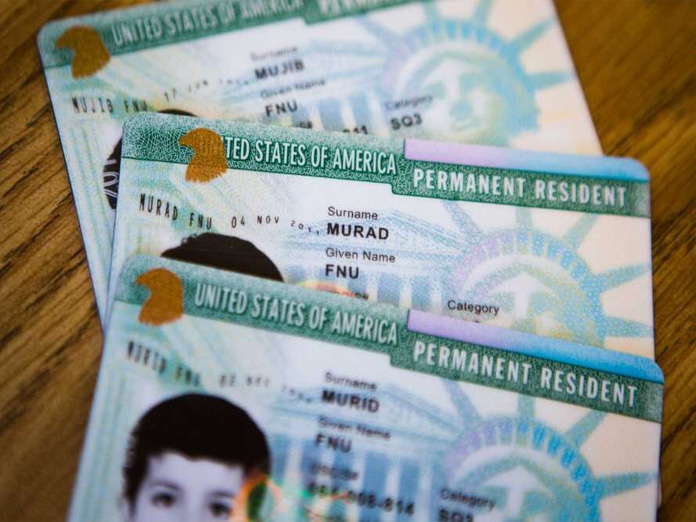Good tidings for green card aspirants

Two identical legislations backed by top companies from the Silicon Valley like Google have been introduced in the US House of Representatives and Senate to end the percountry limit on green cards and could benefit thousands of Indian professionals waiting to gain permanent legal residency if signed into law In the Senate,
Washington: Two identical legislations backed by top companies from the Silicon Valley like Google have been introduced in the US House of Representatives and Senate to end the per-country limit on green cards and could benefit thousands of Indian professionals waiting to gain permanent legal residency if signed into law. In the Senate, Republican Mike Lee and Democratic presidential aspirant Kamala Harris introduced the Fairness for High-Skilled Immigrants Act Wednesday, a bill that would remove per-country cap for employment-based green cards.
An identical bill -- Fairness for High-Skilled Immigrants Act (HR 1044) -- was tabled in the US House of Representatives by Congressman Zoe Lofgren and Ken Buck, Chair and Ranking Member of the House Judiciary Subcommittee on Immigration and Citizenship, with co-sponsorship of a bipartisan group of 112 Congressmen.
If passed by Congress and signed into law, the legislations would benefit thousands of Indian professionals on H-1B visas whose current wait time for permanent legal residency is more than a decade. The H-1B visa, most sought-after among Indian IT professionals, is a non-immigrant visa that allows US companies to employ foreign workers in speciality occupations that require theoretical or technical expertise.
Having a Green Card (officially known as a Permanent Resident Card) allows a person to live and work permanently in the United States.
According to some recent studies, some categories of those Indian professionals face a wait of 151 years under the current system which imposes a country cap on people who get green cards. The United States makes currently 140,000 green cards available every year to employment-based immigrants, including many who first come here on temporary H-1B or L visas.
The existing law, however, provides that not more than 7 per cent of these green cards can go to nationals of any one country — even though some countries are more populous than others. Because of this 7 per cent limit, for example, a Chinese or Indian post-graduate may have to wait half a decade or more for a Green Card, much longer than a student from a less-populated country.
"Ours is a nation of immigrants, and our strength has always come from our diversity and our unity," Harris said. "We must do more to eliminate discriminatory backlogs and facilitate family unity so that high-skilled immigrants are not vulnerable to exploitation and can stay in the US and continue to contribute to the economy," said the Indian-American Senator.
Co-sponsored by 13 more Senators, the Fairness for High-Skilled Immigrants Act increases the per-country caps for family-sponsored green cards from 7 per cent to 15 per cent. Without adding any new green cards, it creates a "first-come, first-served" system that alleviates the backlogs and allows green cards to be awarded more efficiently. "Immigrants should not be penalised due to their country of origin," Lee said.
The bill has also been endorsed by Immigration Voice, Compete America Coalition, the Information Technology Industry Council, Google, Walmart, the US Chamber of Commerce, National Association of Manufacturers, The Heritage Foundation, La Raza, and many others.
"In combination with the per country limits, these backlogs keep nuclear families apart for decades, while preventing US employers from accessing and retaining the employees they need to stay competitive. This is a small, but good step forward," Congressman Zoe Lofgren said.
Congressman Ken Buck said year after year, he has met with constituents who come here legally on work visas from India or China and face decades-long wait times for obtaining permanent residence.
Aman Kapoor, co-founder and president of Immigration Voice, welcomed the move. "It would help to grow our economy by allowing highly skilled immigrants to start their own companies and hire American workers. And, it will finally remove the last vestiges of discrimination from our high-skilled immigration system," Kapoor said.








